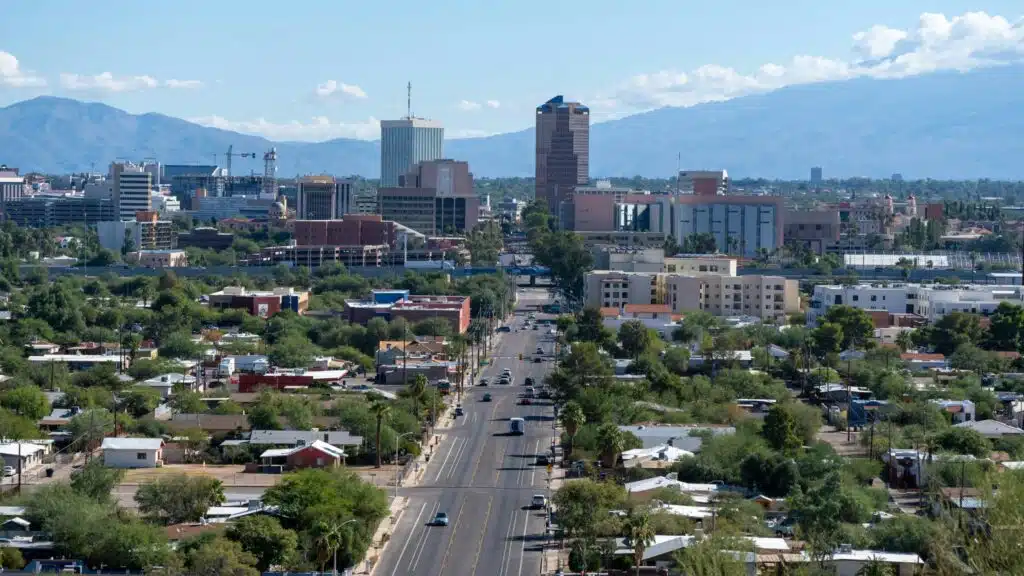Arizona’s Medicaid insurance policies significantly impact healthcare career opportunities. This article explores how these policies shape job responsibilities, growth potential, and industry demand in the state’s healthcare sector. We’ll examine the current landscape of healthcare careers in Arizona, discuss the effects of Medicaid policies on workforce recruitment, and provide insights into navigating policy changes. By understanding these factors, aspiring healthcare professionals can make informed decisions about pursuing careers influenced by Arizona’s Medicaid system, particularly in areas such as nursing and policy development within organizations like the Blue Cross Blue Shield Association.
Key Takeaways
- Arizona’s Medicaid policies significantly shape healthcare careers and job opportunities in the state
- Professionals must adapt to policy changes, regulatory requirements, and evolving administrative responsibilities
- Career growth opportunities exist in specialized areas like care coordination and health informatics
- Educational qualifications and certifications are crucial for success in Medicaid-related healthcare careers
- Networking and professional development resources are important for career advancement in the field
Overview of Arizona’s Medicaid Insurance Policies

Arizona’s Medicaid insurance policies shape healthcare careers. This section explores Medicaid’s role, policy changes, eligibility rules, coverage benefits, and regulatory frameworks. Understanding these aspects is crucial for professionals navigating the healthcare landscape, especially in managing expenses and infrastructure.
Understanding Medicaid’s Role in Arizona
Arizona’s Medicaid program plays a crucial role in shaping healthcare careers and promoting equal-opportunity employment in the state. It provides health and mental health coverage to eligible residents, creating diverse job opportunities in management and direct care. The program’s policies influence how healthcare professionals deliver services, manage resources, and adapt to changing regulations in the field.
Key Policy Developments Over the Years
Arizona’s Medicaid policies have undergone significant changes over the years, impacting career opportunities in the healthcare sector. The integration of technology and the influence of companies like UnitedHealth Group have shaped the evolving medicare landscape. These developments have created new roles and responsibilities for professionals, emphasizing the importance of adapting to a dynamic company culture within the healthcare industry.
Eligibility Criteria and Enrollment Processes
Arizona’s Medicaid eligibility criteria and enrollment processes impact career opportunities in healthcare services. Human resources professionals must understand these processes to ensure fair and diverse hiring practices, regardless of religion or other factors. The enrollment process involves verifying income, residency, and other qualifications, creating jobs in contract management, and eligibility determination.
Coverage Benefits and Limitations
Medicaid programs in Arizona offer a range of coverage benefits and limitations that shape career opportunities in health insurance and healthcare organizations. These benefits influence leadership roles and information management within organizations, requiring professionals to understand and navigate complex coverage structures. The limitations in coverage also create opportunities for specialists to develop innovative solutions and improve access to care within the constraints of the Medicaid system.
The Intersection of State and Federal Regulations
The intersection of state and federal regulations in Arizona’s Medicaid system creates a complex landscape for healthcare professionals. Federal guidelines provide a framework for Medicaid programs, while Arizona’s state-specific policies shape the implementation of these regulations. This interplay influences financial and clinical decision-making within healthcare organizations, requiring professionals to navigate both state and federal requirements in their daily work.
The Landscape of Healthcare Insurance Careers in Arizona

Arizona’s healthcare landscape offers diverse career opportunities shaped by Medicaid policies. Current demand for professionals varies geographically, with urban and rural areas presenting different job prospects. Understanding these factors, relevant laws, and data analysis are crucial for navigating the state’s healthcare job market.
Current Demand for Medicaid Professionals
Arizona’s healthcare community experiences a growing demand for Medicaid professionals. Insurance companies seek compassionate individuals to manage patient care and navigate complex policies. This demand reflects the state’s commitment to expanding healthcare access, creating opportunities for professionals who can blend patient-centered approaches with insurance expertise.
Geographic Variations in Job Opportunities
Job opportunities in Arizona’s Medicaid sector vary significantly across the state’s diverse geography. Urban centers like Phoenix offer more positions in large healthcare organizations and insurance companies, while rural areas face challenges in attracting and retaining Medicaid professionals. As an equal-opportunity employer, the state’s Medicaid system strives to provide employment access for individuals with disabilities through affirmative action initiatives. This geographic disparity influences career paths and specializations within the Medicaid field, shaping Arizona’s healthcare services distribution.
The Impact of Demographics on Employment
Arizona’s demographics significantly influence employment in the Medicaid sector. As the state’s population grows and diversifies, healthcare providers and insurance companies need professionals who can address the varied needs of different communities. Physicians and medical staff must adapt to serve patients from diverse backgrounds, while exploring cost-effective ways to deliver care. This demographic shift creates opportunities for healthcare workers who can navigate cultural nuances and language barriers, enhancing the overall quality of Medicaid services across Arizona.
Trends in Urban and Rural Healthcare Jobs
Urban and rural areas in Arizona show distinct trends in healthcare jobs related to Medicaid policies. Urban centers offer more diverse opportunities, including roles in life insurance and healthcare management. Rural regions face challenges in attracting and retaining healthcare professionals, leading to innovative solutions like telemedicine. These trends shape career paths in Medicaid-related fields across the state:
- Urban areas: More specialization options and administrative roles
- Rural areas: Focus on primary care and community health initiatives
- Telemedicine: Growing demand for professionals skilled in remote healthcare delivery
- Life insurance: Increasing integration with healthcare services in both urban and rural settings
Effects of Medicaid Policies on Career Opportunities

Arizona’s Medicaid policies significantly impact career opportunities in healthcare. Policy changes shape job roles, influencing employment stability and compensation. The growth of telehealth creates new remote positions. Understanding these effects is crucial for professionals navigating the evolving healthcare landscape in Arizona.
How Policy Changes Shape Job Roles
Policy changes in Arizona’s Medicaid system reshape job roles in the healthcare sector. As new regulations emerge, professionals must adapt their skills and responsibilities to meet evolving requirements. This dynamic environment creates opportunities for specialization in areas such as compliance, data analysis, and patient advocacy. Healthcare workers who stay informed about policy updates and their implications can position themselves for career growth and advancement within the Medicaid system.
Influence on Employment Stability and Security
Medicaid policies significantly impact employment stability and security in the healthcare sector. Changes in funding, coverage, and regulations can create job availability and security fluctuations. Healthcare professionals specializing in Medicaid-related services may experience varying levels of job stability based on policy shifts. To navigate this dynamic environment, workers often need to adapt their skills and stay informed about policy changes:
- Continuous learning and skill development
- Flexibility in job roles and responsibilities
- Networking within the Medicaid healthcare community
- Monitoring policy updates and their potential impacts
Impact on Compensation and Benefits
Arizona’s Medicaid policies directly influence compensation and benefits for healthcare professionals. As the state adjusts its Medicaid program, healthcare organizations may modify their salary structures and benefit packages to align with new funding levels and service requirements. Professionals who specialize in Medicaid-related services often find their compensation tied to policy changes, creating a dynamic salary landscape. These shifts in compensation and benefits can impact career decisions and job satisfaction within the Medicaid healthcare sector:
- Salary adjustments based on Medicaid reimbursement rates
- Changes in benefit packages to attract and retain skilled professionals
- Performance-based incentives linked to Medicaid quality metrics
- Opportunities for additional compensation through specialized Medicaid roles
Growth of Telehealth and Remote Positions
Arizona’s Medicaid policies have fueled the growth of telehealth and remote positions in the healthcare sector. As the state expanded coverage for virtual healthcare services, new career opportunities emerged for professionals skilled in telemedicine technologies and remote patient management. This shift has created roles for telehealth coordinators, virtual care specialists, and remote health educators, allowing healthcare workers to serve Medicaid beneficiaries across the state’s diverse geographic areas.
Navigating Challenges Posed by Policy Changes

Navigating challenges posed by Medicaid policy changes requires healthcare professionals to adapt quickly. This section explores strategies for managing new regulations, administrative tasks, and compliance requirements. It also highlights the importance of ongoing education to stay current in the evolving healthcare landscape. Understanding these challenges is crucial for career success in Arizona’s Medicaid system.
Adapting to New Regulatory Requirements
Healthcare professionals in Arizona must adapt quickly to new regulatory requirements in the Medicaid system. As policies change, workers need to stay informed about updated guidelines, documentation procedures, and compliance standards. This ongoing process requires professionals to develop flexible skill sets and maintain open communication channels with regulatory bodies and healthcare organizations. By embracing continuous learning and seeking regular updates on policy changes, healthcare workers can navigate the evolving regulatory landscape effectively.
Managing Administrative Responsibilities
Healthcare professionals in Arizona’s Medicaid system face increasing administrative responsibilities due to policy changes. They must efficiently manage patient records, billing processes, and compliance documentation while adapting to new software systems and reporting requirements. To navigate these challenges, professionals often develop time management strategies and leverage digital tools to streamline administrative tasks, allowing them to balance paperwork with patient care effectively.
Strategies for Compliance and Best Practices
Healthcare professionals in Arizona’s Medicaid system employ various strategies to ensure compliance and implement best practices. They regularly attend training sessions to stay updated on policy changes and participate in peer-review processes to maintain high standards of care. Many organizations also implement internal auditing systems to proactively identify and address compliance issues, helping staff navigate the complex regulatory landscape more effectively.
Importance of Continuing Education
Continuing education plays a crucial role for professionals navigating Arizona’s Medicaid policy changes. As regulations evolve, healthcare workers must stay current with new procedures, technologies, and best practices. Many organizations offer specialized courses and certifications focused on Medicaid policies, helping professionals adapt to the changing landscape and maintain their competitiveness in the job market.
Opportunities for Growth in Arizona’s Medicaid System

Arizona’s Medicaid system offers diverse growth opportunities for healthcare professionals. This section explores high-demand specializations, pathways to leadership positions, strategies for building professional networks, and collaborations with community health organizations. Understanding these areas helps professionals navigate career advancement within the state’s Medicaid landscape.
High-Demand Specializations
Arizona’s Medicaid system has created several high-demand specializations for healthcare professionals. Care coordination, behavioral health integration, and health informatics have emerged as key areas of growth. These specializations offer career advancement opportunities for those who develop expertise in managing complex patient needs, integrating mental health services, and leveraging data analytics to improve healthcare delivery:
| Specialization | Key Skills | Career Opportunities |
|---|---|---|
| Care Coordination | Patient advocacy, multi-disciplinary collaboration | Care Manager, Patient Navigator |
| Behavioral Health Integration | Mental health assessment, collaborative care models | Integrated Care Specialist, Behavioral Health Consultant |
| Health Informatics | Data analysis, health information systems | Health Data Analyst, Clinical Informatics Specialist |
Advancing Into Leadership Positions
Arizona’s Medicaid system offers healthcare professionals various pathways to advance into leadership positions. As professionals gain experience and expertise in Medicaid policies and operations, they can move into roles such as program directors, policy analysts, or healthcare administrators. These leadership positions require a deep understanding of Arizona’s Medicaid landscape, strong management skills, and the ability to navigate complex regulatory environments.
Building Professional Networks
Building professional networks plays a crucial role in career growth within Arizona’s Medicaid system. Healthcare professionals can expand their connections by attending industry conferences, joining professional associations, and participating in local healthcare initiatives. These networking opportunities allow individuals to share knowledge, stay informed about policy changes, and discover new career prospects within the Medicaid landscape.
Collaborating With Community Health Organizations
Collaborating with community health organizations offers significant growth opportunities for professionals in Arizona’s Medicaid system. Healthcare workers can partner with local clinics, non-profit organizations, and social service agencies to develop innovative care delivery models and address social determinants of health. These collaborations enhance career prospects by broadening professional networks, providing exposure to diverse healthcare challenges, and fostering skills in community engagement and project management.
Steps to Pursue a Career Influenced by Medicaid Policies

Pursuing a career influenced by Medicaid policies requires specific steps. This section outlines essential educational qualifications, necessary certifications, job search strategies, and resources for professional development. Understanding these aspects helps individuals prepare for and succeed in Medicaid-related healthcare careers in Arizona.
Essential Educational Qualifications
Pursuing a career influenced by Arizona’s Medicaid policies requires specific educational qualifications. Professionals typically need a bachelor’s degree in healthcare administration, public health, or a related field. Some positions may require advanced degrees, such as a master’s in health policy or public administration. Coursework in healthcare finance, policy analysis, and Medicaid regulations is essential for success in this field:
| Degree Level | Relevant Fields | Key Courses |
|---|---|---|
| Bachelor’s | Healthcare Administration, Public Health | Health Policy, Healthcare Finance |
| Master’s | Health Policy, Public Administration | Medicaid Regulations, Policy Analysis |
| Doctoral | Health Services Research, Health Economics | Advanced Policy Evaluation, Healthcare Systems |
Obtaining Necessary Certifications
Obtaining necessary certifications is crucial for professionals pursuing careers influenced by Arizona’s Medicaid policies. These certifications demonstrate specialized knowledge and commitment to the field, enhancing career prospects. Common certifications include the Certified Medicaid Specialist (CMS) and the Certified Medicaid Professional (CMP), which validate expertise in Medicaid regulations and operations. Professionals should research certification requirements specific to their desired roles and Arizona’s healthcare landscape:
| Certification | Focus Area | Benefits |
|---|---|---|
| Certified Medicaid Specialist (CMS) | Medicaid regulations and compliance | Enhanced credibility, specialized knowledge |
| Certified Medicaid Professional (CMP) | Medicaid operations and management | Career advancement, improved job prospects |
| Arizona-specific certifications | State Medicaid policies and procedures | Local expertise, networking opportunities |
Strategies for a Successful Job Search
Professionals seeking careers influenced by Arizona’s Medicaid policies can employ several effective job search strategies. They should leverage online job boards specializing in healthcare and government positions, network with industry professionals through LinkedIn and local healthcare associations, and attend job fairs focused on Medicaid-related roles. Tailoring resumes and cover letters to highlight knowledge of Arizona’s Medicaid system and relevant policy experience can significantly improve chances of securing interviews with potential employers.
Resources for Professional Development and Mentoring
Arizona offers numerous resources for professional development and mentoring in Medicaid-related careers. The Arizona Health Care Cost Containment System (AHCCCS) provides training programs and educational materials on Medicaid policies and procedures. Professional organizations like the Arizona Public Health Association offer mentoring programs and networking events for healthcare professionals. Additionally, local universities and community colleges often host workshops and seminars on healthcare policy and Medicaid administration, providing valuable opportunities for career advancement and skill development.
Conclusion
Arizona’s Medicaid insurance policies significantly shape career opportunities in the healthcare sector, influencing job roles, employment stability, and compensation. Understanding these policies is crucial for professionals navigating the evolving healthcare landscape, as they impact everything from eligibility criteria to coverage benefits and regulatory frameworks. The dynamic nature of Medicaid policies creates both challenges and opportunities, requiring healthcare workers to adapt quickly, pursue continuing education, and develop specialized skills in high-demand areas. By staying informed about policy changes, obtaining relevant certifications, and leveraging professional networks, individuals can position themselves for success and growth in Arizona’s Medicaid-influenced healthcare careers.




